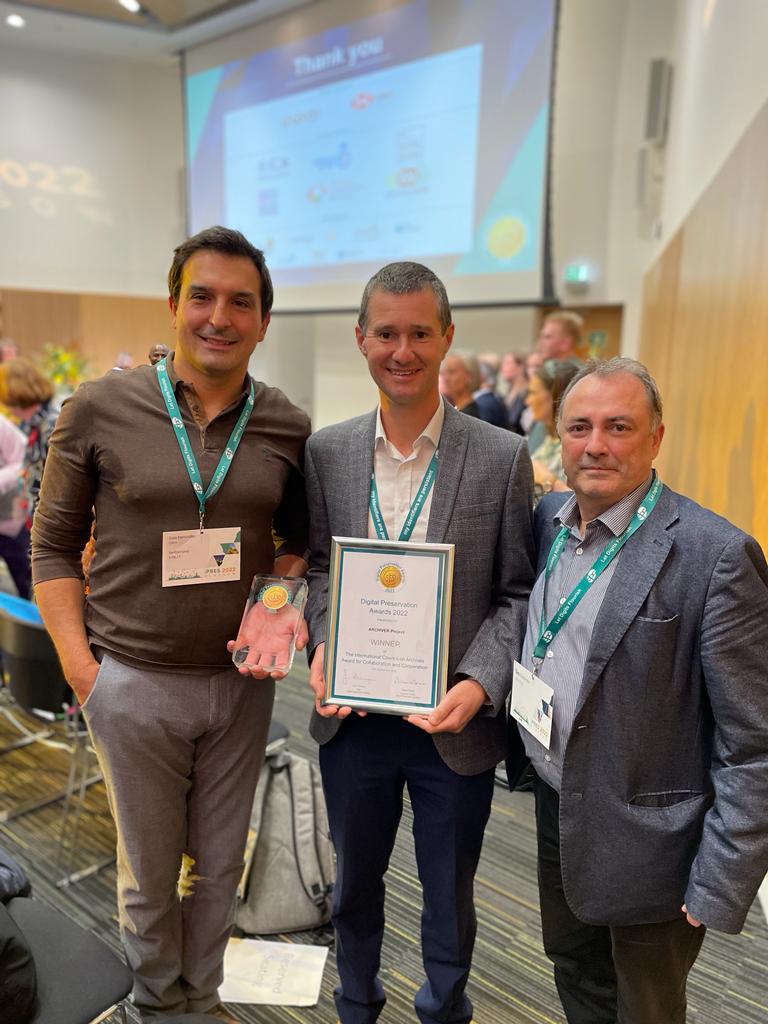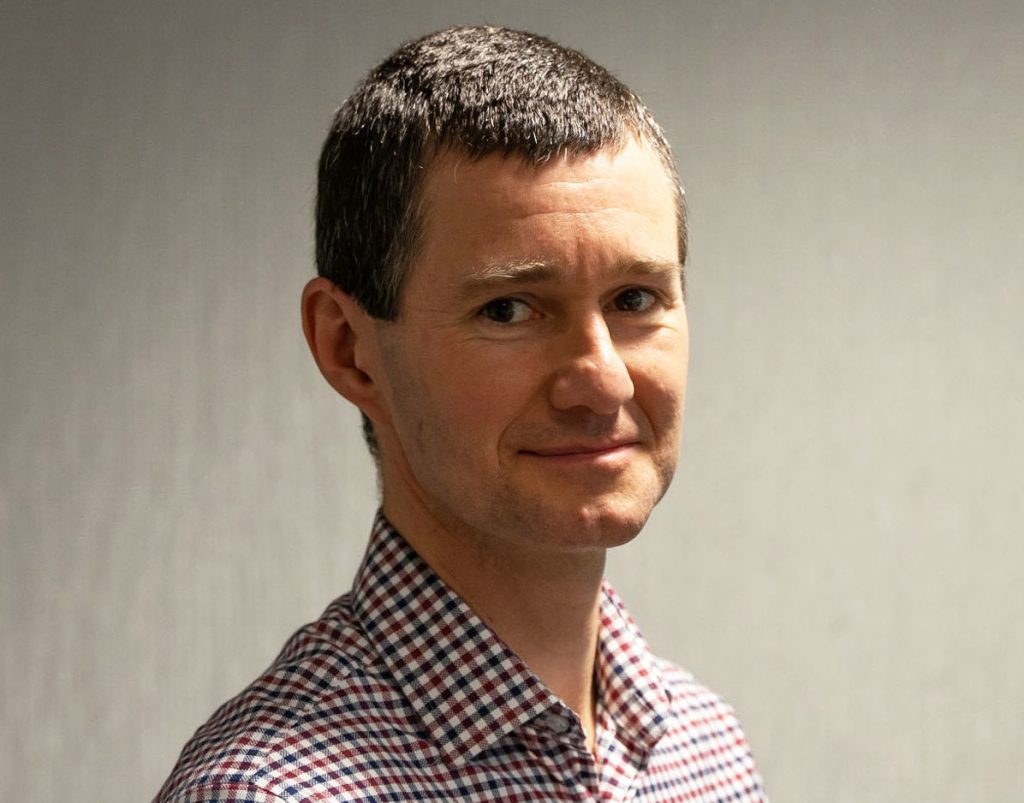iPRES 2022: Leading Digital Preservation conference where digits flourish.
It was fantastic for Arkivum to attend the iPRES conference in person now that the conference scene is getting back to normal. iPRES is the leading international conference for digital preservation. This year, iPRES was in Glasgow and did not disappoint! Great city, great conference, and great people! There was so much to enjoy, learn and share. The conference slogan was ‘Let Digits Flourish’, which borrows from the motto of the host city: ‘Let Glasgow Flourish’. And flourish the digits certainly did.
Arkivum had a stand, we participated in two panel sessions, we demonstrated our solution as part of the conference’s Digital Preservation Bake Off, we presented a lightning talk, and last, but by no means least, we were part of the ARCHIVER team that won the International Council of Archives (ICA) award for Collaboration and Cooperation at the Digital Preservation Awards. It felt manic at times, and at one point I literally had to run between two sessions because I had to be in two places at once, but it was so worth it just to be in the middle of such a lively conference.

João Fernandez and Matthew Addis receiving the International Council of Archives award for Collaboration and Cooperation at the Digital Preservation Awards. (iPres 2022)
It’s hard to pick a stand-out part of the conference. There was something for everyone including tutorials and workshops, technical sessions on the state of the art, demonstrations from vendors and open source projects, inspirational keynotes to ground everyone in why digital preservation is so important and the lives it affects, a digital preservation games room, sessions on community building, and most importantly no end of coffee, cakes, and great food to keep everyone fuelled. The conference schedule is online if you want to know more.
A sustainable future for digital content
If there is one aspect that I’ll pick then it would be the theme of climate change and environmental sustainability that ran through several parts of the conference.
In a panel session (programme: Exchange 2) called ‘”IT’S ALL IMPORTANT OF COURSE, BUT…” that hotly debated what the most important challenge is for digital preservation (costs, advocacy, people all came high up the list, and rightly so), I think it was Keith Pendergrass, one of the authors of a report on the environmental sustainability of digital preservation, who made the observation from the audience that “how to ensure content is sustained through climate collapse is perhaps the biggest challenge for preservation”. This is what you might call an existential level threat. I thought it was a particularly relevant observation because other parts of the conference discussed how archiving and preservation could be enabled within local communities. Long-term digital memory and access goes grass-roots. With this comes better engagement and representation of these communities and dealing with thorny issues such as collecting bias and ‘decolonisation’ of the digital preservation of our heritage.
But it strikes me that grass-roots community collecting and archives, especially in developing countries, are both the least well equipped to deal with the impacts of climate change and at the same time the most likely to be affected. It won’t be content in the national libraries that will be lost, but content in small archives that are hit with increasingly extreme climate events that literally destroy their very existence.
A role for DNA Data Storage
There are many aspects of addressing this problem, but from a purely technical perspective this tied in nicely with the panel session (programme: Innovation 2) that I was part of earlier in the conference on DNA data storage. Using DNA for storing data is a developing technology that is only just starting to be trialled in the digital preservation community. It holds the promise of very low-cost data storage that has an extremely long lifetime (measured in millennia) when stored in little more than tiny canisters in a freezer. It seems to me that this sort of technology has the ability to support the equivalent of the Svalbald Global Seed Vault for digital content – indeed the Global Seed Vault would be an ideal place to store the DNA data ‘memory seeds’ from community archives. There is a long way to go for this to become a reality, and I played devil’s advocate in the panel session, but the threat of climate change means that radical approaches like this will be needed if we don’t want to lose content forever. It was only after the panel session and Keith’s comment that I started to draw together the conference threads of communities, climate and new technologies for storage. But that’s the value of iPRES – it encourages you to think in different ways and make connections you otherwise wouldn’t.
The environmental cost of Digital Preservation
The thread of climate change also ties in nicely with a great session (programme: Environment 1) that included papers from Virginia Tech, Penn State University Libraries and Sound and Vision in the Netherlands. Each of these looked at reducing the carbon footprint of digital preservation. This was also the subject of my lightning talk. It was good to see Virgina Tech go on to win best paper at the conference and Sound and Vision win best poster on the same topic – which is recognition of the importance of this issue.
The carbon footprint of digital preservation is the flip-side of the climate change coin. On the one side, climate change is a threat to digital preservation. On the other side, it is beholden on those who preserve content to do so in an environmentally sustainable way. Or, to put it more bluntly, preservation should not strive to keep digital content alive for future generations but at the same time destroy their environment! I’ve blogged before about environmental sustainability of digital preservation and how Arkivum can help reduce carbon footprint when doing digital preservation in the cloud. Everyone needs to do their bit.
Finally, my thanks and congratulations go to the Digital Preservation Coalition for organising iPRES and helping to make it such a success. Planning and running iPRES is no mean feat and the DPC and the rest of the organising team pulled it off with aplomb. So whilst the good folk at the DPC recover and take a well-earned rest, here’s to next year’s iPRES, and borrowing from the iPRES 2022 slogan, let digits continue to flourish!

Matthew Addis
Matthew is CTO and Founder of Arkivum, responsible for technical strategy. Matthew previously worked at the University of Southampton IT Innovation Centre. Over the last fifteen years, Matthew has worked with a wide range of organisations in the UK, Europe and US on solving the challenges of long-term data retention and access.
Get in touch
Interested in finding out more? Click the link below to arrange a time with one of our experienced team members.
Book a demo